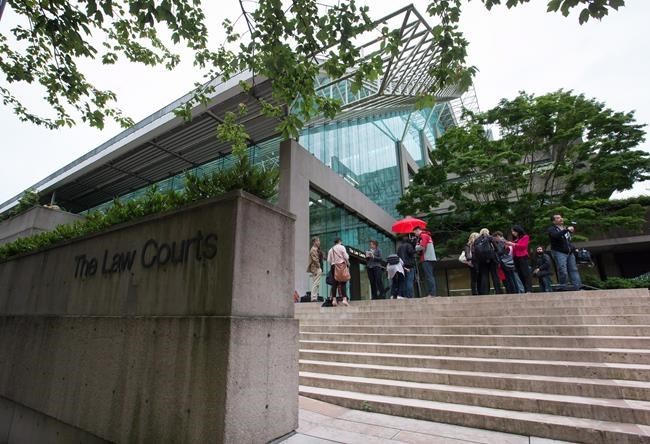VANCOUVER — A forensic pathologist said it was his "certain conclusion" that a 13-year-old girl found dead in a B.C. park six years ago died of strangulation, after her alleged killer's lawyer asked if wording in the autopsy report left any room for doubt.
Dr. Jason Morin, who performed the autopsy, testified under cross-examination Wednesday that he took swabs of the girl's neck to preserve any DNA that might have been left by her attacker.
The body of the girl, who cannot be identified under the terms of a publication ban, was found in Burnaby's Central Park in July 2017, just hours after her mother reported her missing.
Ibrahim Ali has pleaded not guilty to first-degree murder.
Morin previously told the jury in the British Columbia Supreme Court trial that his autopsy determined the girl died after being strangled, which had caused blood vessels in her eyes and face to burst.
Ali's lawyer Ben Lynskey on Wednesday pointed to "the absence of injuries" to both internal and external structures of the neck.
He later quoted from portions of Morin's autopsy report that said the death was "suspicious and consistent with strangulation."
He asked whether the language was intentional because there could be another potential cause of death.
"That's a certain conclusion," Morin said of his strangulation finding.
"I didn't find anything else at the time of autopsy that would explain" her death, he said.
The Crown had earlier questioned Morin about the steps he took in his autopsy, including where he had taken swabs, but Lynskey homed in on the swabs to her neck.
The circumstances of the case inform where swabs are taken, Morin told the jury.
"We do the swabs because there's a chance that the evidence transfer happened," he said when asked about the neck swabs on Wednesday.
"We're essentially looking for transfer of DNA from someone else on the body to be able to place that person somehow involved (with) that body. How they were involved with that body just depends on the rest of the investigation," he said.
Content warning: material that some may find disturbing follows.
Morin also conducted DNA swabs of the girl's genitals, mouth and breasts as police had informed him that she may have been the victim of a sexual assault, he said.
He told the jury during direct examination by the Crown this week that sperm was found in the girl's body.
He also said he identified a number of injuries, including bruising, scraping and tearing on the back of her head, as well as to her face, arms and legs.
Crown attorney Isobel Keeley said in an opening statement that the court would hear evidence showing the murder was random, but DNA results would prove Ali sexually assaulted her.
She said the evidence would show the girl was passing through a neighbourhood park when she was dragged off a pathway into the forest by Ali, sexually assaulted and strangled.
The defense has not yet told the jury its theory of events.
The Crown initially told the jury the trial was expected to take about two months but Justice Lance Bernard said Wednesday that it would likely extend until the fall.
This report by The Canadian Press was first published May 17, 2023.
Brieanna Charlebois, The Canadian Press

